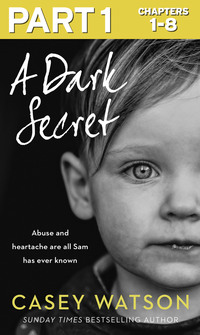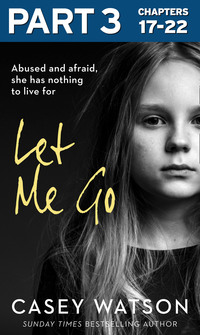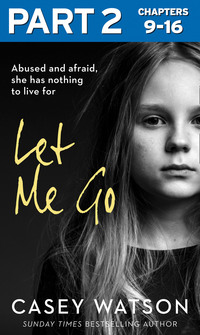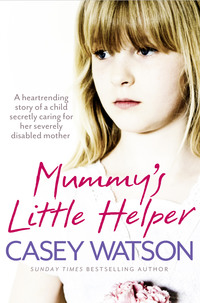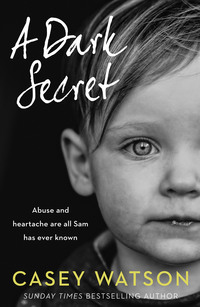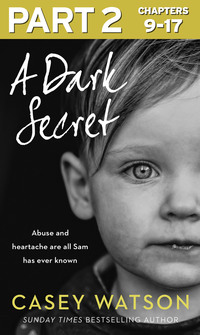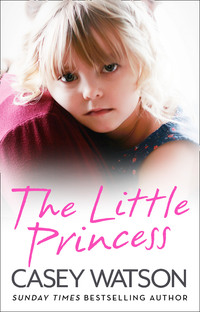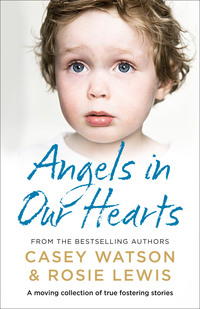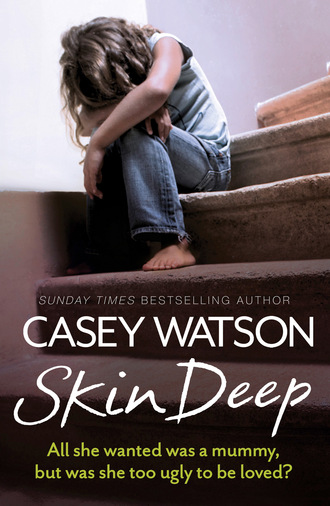
Полная версия
Skin Deep
I opened the door, the sun streaming in almost bodily; certainly casting my guests into deep shadow, almost silhouetting them on the step. But not for long, because the little girl stepped straight over the threshold. ‘Hello,’ she said brightly. ‘Do you think I’m ugly, Mummy?’
As first lines went, it was an unusual one, to say the least, but as I smiled down at the dot of a girl who now stood before me, I was more struck by what I saw than what she’d said. She was dressed for the weather, in a flower-sprigged cotton sundress with a shirred bodice, the straps tied in neat bows on her skinny shoulders, but my eyes were immediately drawn upwards, to her face.
I’d clearly absorbed more about her syndrome in training than I’d realised. I took in the small head – which seemed too small, even on her tiny little body, even with her fullish head of wavy dark-blonde hair. I took in the far-apart eyes, the upturned nose and the thin upper lip. It was almost like ticking off boxes on a checklist, and I was surprised how immediately the details of FAS came back to me.
But ugly? No, call me soft, but she definitely wasn’t that. Arresting, unusual, but definitely not ugly. Bless her little heart.
‘No, of course you’re not, sweetheart!’ the young woman with her supplied before I could, as she steered Flip around me so she could step inside herself.
‘There,’ I added, smiling at her. ‘Took the words right out of my mouth. Come on in – Flip, isn’t it?’
The girl nodded. ‘And this is Ellie. She’s my social worker. She’s pretty, isn’t she, Mummy?’
‘She is indeed,’ I said, smiling at the social worker, then gesturing towards the doll in Flip’s hand. ‘And who’s this?’
‘It’s Pink Barbie. We nearly forgetted her.’ She raised her other hand, which was clutched around the handle of a small pink vanity case. Both looked new. And apparently were. ‘She goes with this,’ Flip explained. ‘It’s to keep all her clothes in. I gotted them from Mrs Hardy. As a present.’
‘And we nearly came without her, didn’t we?’ the social worker added. ‘As John no doubt told you. Still, we’re here now. All present and correct. Well, such as we can be.’ She too raised a hand holding a bag; in this case a ‘for life’ one, supplied by a well-known supermarket. ‘This is pretty much it.’
‘And I’m pretty, too,’ Flip reminded her. ‘Mummy said so.’
We went back in the kitchen to find that John had filled the kettle and put it on, and was busy pulling mugs from one of the cupboards.
‘You must have read my mind,’ I said, pulling out a third chair. ‘How about you, Ellie – coffee? And what about you, Flip?’ I added, as the social worker nodded an affirmative. ‘Would you like some juice?’
Flip turned to her Barbie – clearly now a very precious possession, even though she had managed to forget her temporarily along the way. ‘Yes, please,’ she said, having put the doll to her ear. ‘And Pink Barbie says do you have any teeny-weeny cups, Mummy?’
‘I’m sure we can find something just right for her,’ I assured her. Mummy. And three or four times now, I mused, as I rummaged in my ‘teeny-weeny cups’ drawer for something Barbie-sized the doll could sip from. What an unusual prospect this sweet little girl looked like being.
Unusual, interesting and definitely bordering on the profoundly challenging. Or so I was about to find out. First, though, there was the usual raft of paperwork, and, of course, the formal introductions. Ellie turned out to be called Ellie Markham, and had only just been assigned to Flip, as a consequence of her having been transferred from out of our local authority area. Though, thankfully, they’d been prompt in transferring all her notes, I felt for Ellie; guessing at her age, my hunch was that she’d not long been qualified, so she was probably diving straight into the deep end while still a little wet behind the ears.
As she wasn’t in a position to give us much in the way of background, I suggested she and I take Flip outside to meet Tyler and Denver, and that perhaps Tyler could take them on a little tour of the house and garden. It was a job that usually fell to Mike while John and I and the attending social worker dealt with all the forms, but with it having been too short notice for Mike to get away from work, we were having to improvise on that front anyway.
Which was fine; I also thought it would be nice for Tyler to meet Flip with his role in the family clearly evident, i.e. that she could see he was very much one of the family, and would naturally assume a big-brother role while she was with us, for however long that looked like being. We’d already primed him a while back, and with the respite work we’d done since we’d had him I was confident he’d adjust to a new child pretty quickly, just as long as he didn’t feel insecure.
Indeed, he seemed puffed up with pride at being given the responsibility, and it was only Ellie’s insistence that she stay by Flip’s side that meant she wasn’t back with John and me herself. ‘Crossing the Ts and dotting the Is,’ John explained when I returned to the kitchen so we could make as short work as possible of the formalities. ‘She has a tendency to wander, I’m told. No sense of stranger danger either – one of the features of her FAS.’ He patted a pile of papers in a slip case. ‘There’s plenty for you to get your teeth into here.’
‘And this is it, is it?’ I asked him as I retook my place at the table. ‘She’s in the care system now? No likelihood of her being reunited with her mum?’
John shook his head. ‘That’s not the plan. She’s been on the “at risk” register for quite a while now, apparently; there have been repeated attempts to get Mum into alcohol abuse programmes, parenting classes and so on, so this fire’s really just been a line drawn in the sand. It was probably only a matter of time in any case. There’s no home for either of them to go back to now, anyway. They’ve apparently lost everything.’ He pointed to the bag Ellie had parked by the table. ‘That’s all she has; the bits and pieces the respite carers pulled together for her. So she’ll need kitting out …’
‘That’s no problem,’ I said. ‘Well, in terms of stuff to run around in, anyway. I have a boxful. Not that any of it’s pink. Poor mite. She must be reeling inside, even if she’s not showing it. Probably too dazed by it all … When did it happen?’
‘Friday evening,’ John said. And we were now into Wednesday.
‘She must be in shock still,’ I said, as I took the forms he was handing me. Copies of the care plan, the risk assessment, the moving forms and so on, all to be signed three times. Nothing in social services ever happened except in triplicate.
John shook his head. ‘Apparently not,’ he said. ‘Ellie tells me what you see is what you get. One of the main problems Flip has is a lack of empathy, which I’m told is quite common. I’m sure you’ll be Googling it all later, and, as I say, there’s more about her background in the file here, but she’s a tricky one; she’s already been dealing with the legacy of being born the way she is, and it’s been compounded by the rackety way she and her mother have been living. Oh, and she’s on Ritalin for her ADHD, so that needs managing too. And probably hasn’t been, not properly …’ He grimaced as he tailed off. ‘You know how it goes.’
‘Indeed I do,’ I said, mentally ticking off another checklist. Of all the things we’d need to get put in place as a priority; of all the things we’d need to establish in terms of ground rules and routines and behaviours. Of how many ways in which my first impression had already begun changing about this outwardly sweet, biddable, idiosyncratic little girl.
‘Oh and one other thing –’ John began, but once again we were interrupted. By Tyler, who blew into the kitchen like an EF5 tornado, with Denver close behind.
‘OMG, Casey!’ he panted. ‘OMG! Yeuch! You gotta come!’
‘Come where?’ I wanted to know. ‘And what are those faces for, the pair of you?’
‘Casey, it’s like, soooo gross,’ Denver supplied. ‘You won’t believe it, honest.’
‘Like, so gross,’ Tyler added, grabbing my hand and tugging on it. ‘And that social worker lady, she says can you bring, like, a plastic bag and stuff? That girl –’ he gestured behind him. ‘She’s only gone and done a poo on the grass!’
I looked at John. ‘That the one other thing, by any chance?’
He nodded. ‘Yup.’
Chapter 3
Mike and I have dealt with our fair share of ‘accidents’ with children over the years, so while Tyler and Denver continued to express their horror via the medium of extreme face-pulling, I simply reached for a pack of baby wipes, my disinfectant and my heavy-gauge rubber gloves, while John, following my instructions, pulled a plastic bag from the roll in the utensil drawer.
‘Boys, hush,’ I told them as we all trooped in a crocodile out to the garden. ‘It’s just a poo, not the Four Horsemen of the Apocalypse!’
Ellie and Flip were in the far corner by our trio of plucky rose bushes – which seemed appropriate; roses loved a mulch of manure, didn’t they? Ellie was squatting on her haunches, talking quietly to Flip, as she carefully helped her step out of the pants she’d had on and had presumably pulled down before squatting on the grass herself.
I strode across to them, aware of the boys keeping a wary distance, and of John sensibly electing to stay with them and chat.
‘Here we are, sweetie,’ Ellie said brightly as she took the baby wipes from me and proceeded to pluck one from the packet to clean Flip up. ‘Let’s get you sorted now, shall we? And what do we say to Casey?’
Flip was now standing wide-legged, as if recently alighted from a long journey on horseback, which point I noted, wondering as I did so what life with her alcoholic mother had been like. She was eight. Not 18 months. Yet she was obviously used to being cleaned up in such a fashion. So this – this tendency to go where she needed to as well as when she needed to – was probably a long-entrenched behaviour.
‘Sorry, Mummy,’ Flip said, looking genuinely, if only very slightly, contrite. ‘I didn’t know it wasn’t allowed.’
‘Now that’s not strictly true, lovely, is it?’ Ellie corrected gently. ‘We go to the toilet in the toilet. Nowhere else. Remember?’
‘But I was despret,’ Flip countered. ‘I couldn’t help it. It just comed out.’
Since I could see for myself that this clearly wasn’t a case of a tummy upset, I doubted that very much. But perhaps she had never learned to ‘feel’ the usual signals; or, perhaps more likely, not to worry about the necessity to act on them as a priority. I sensed John was right. This wasn’t a signifier of emotional stress. It was a lack of house-training.
‘Let’s not worry for now,’ I said, as I pulled the gloves on and dealt with the other half of the equation. ‘We can have a chat about all that later, can’t we? In the meantime, let me deal with this’ – I tied up my bag – ‘and then we’ll see about finding you a swimming costume so you can have a play in the paddling pool with the boys. How about that?’
‘And Pink Barbie?’ Flip asked, beaming now, while Ellie used another baby wipe on her hands. ‘She’s got a cossie, she has. A sparkly one. She’s a beach Barbie, too.’
‘Excellent,’ I said, as Ellie rose to her feet and we followed a now skipping Flip back across the grass. ‘How about you get Barbie changed, then, while I see what I can find for you?’
She was back through the conservatory doors and off into the kitchen like a rocket, and I realised what we were dealing with felt more like a four-year-old than an eight-year-old. And then realised something else. The effect the something I was carrying was now having.
‘Oh my God!’ Tyler shrieked theatrically, seeing the plastic bag swinging from my hand and immediately shrinking away from me. ‘That’s just too gross. You’re not going to let her live with us, are you?’
I surveyed the offending bag, recalled the lack of mortification in our young visitor, and wondered if I should start the toilet training sooner rather than later, by having Flip accompany me to the downstairs loo for a ceremonial flushing away before we did anything else.
There were a multitude of challenges that we’d be facing with this slip of a child. I knew that, because John had already told me. Issues of her ADHD (attention deficit hyperactive disorder), of her lack of empathy, of her apparent tendency to wander, of how the huge change in her life might impact on her emotional health. All of this fazed me not a jot, and I knew it wouldn’t faze Mike either. Our programme was designed to take a pragmatic, systematic approach to those challenges and we’d done it enough now to feel confident we would deliver it well.
But I also thought back to previous placements, and one in particular; a pair of almost feral young siblings. And, by extension, to the uniquely soul-sapping business of having a child or children regularly soiling around the house. No, it wasn’t a deal-breaker – well, hopefully – but as Tyler stood waiting for my answer I wondered if his question might be echoed by Mike, just as soon as he got home.
The soiling, however, wasn’t Mike’s main concern that evening. Nor was it mine, because, though my hunch was that she wouldn’t need to go again (not in that way), I watched Flip like a hawk. As did Tyler and Denver, with a kind of appalled fascination, as, once John and Ellie had been dispatched (the latter promising to return on the Friday to catch up and see how things were going), she darted from kitchen to conservatory to garden to living room, all the time chatting thirteen to the dozen to Pink Barbie, and seemingly physically unable to stay in one place, or engaged in one activity for more than five minutes at a time.
I’d had several children in my care who suffered the symptoms of ADHD, so the mile-a-minute behaviour and tendency to be easily distracted weren’t unfamiliar territory. What did strike me, and struck Mike as soon as he’d spent half an hour in her company, was that, very much unlike the majority of children we’d fostered, little Flip seemed not the least concerned to find herself in the company of complete strangers.
‘It seems like almost the opposite,’ he remarked, once we were flaked out on the sofa, half-watching Tyler’s favourite soap. ‘I’ve never seen a new kid so pumped up with excitement about being here. Weird.’
It was probably adrenaline, I’d decided. And it had clearly worn her out. When Flip had crashed, she had crashed good and proper. Having wolfed down her plate of bangers and mash – of necessity, it had been a cobbled-together kind of tea – she announced that Pink Barbie was tired and needed to go to bed and she thought it would be a good idea if she went with her.
We’d tried not to smile at Tyler’s fist pump (we knew how he felt) and, as Mike and he dealt with the dishes, I took her upstairs and found her some pyjamas from my stash, upon which she was in bed and fast asleep within a matter of minutes, Pink Barbie in her own pink pyjamas tucked in the crook of her arm.
‘She’s weird,’ Tyler observed now. ‘She’s like a loony, isn’t she, Casey?’ He glanced at Mike, then, presumably to check that the use of the word ‘loony’ was acceptable. Which it wasn’t, of course, but, as he already knew that, Mike didn’t press it. This was an adventure, and a challenge, that was going to involve him as well, after all.
‘She’s certainly one of a kind,’ Mike agreed, diplomatically. ‘And I’m sure she’s going to keep us all on our toes.’ He turned his gaze away from the television and leaned forward so he could look at Tyler properly. ‘But you and me are well up to that job, aren’t we, kiddo? Because I think Casey here’s going to have a lot on her hands, don’t you?’ He accompanied his words with a wink and raised a hand, with the palm towards Tyler. ‘Deal, kiddo?’
Tyler slapped the palm with his own and grinned. ‘Deal!’
I could have kissed Mike for that. There I’d been, getting increasingly stressed about whether Tyler potentially might find it all much too difficult to handle, and with a scant half dozen words Mike had him completely on side: we were Team Watson and we were in this together. I knew there would be flashpoints and disaffections – I’d be mad not to expect that – but I also felt confident we could rise to them; especially if Flip went to bed at a reasonable time every night, giving us all that precious space to recharge.
And we would need to recharge, if today had been indicative. Ellie had assured me Flip had been given her morning Ritalin by the respite carer, and I’d given her a dose at teatime, but if that was her dosed, I could only wonder incredulously what she might be like unmedicated. She was like a Duracell bunny as it was.
‘You’re telling me I’ll need back-up,’ I confirmed, nudging Tyler and grinning. ‘She’s only got one speed setting, hasn’t she, Ty? Billy Whizz.’
He looked confused. ‘Who’s Billy Whizz?’
‘He’s out of a comic,’ I explained. ‘One I used to read when I was Flip’s age. It’s called The Beano and Billy Whizz was a boy who went everywhere super-fast. You’ve heard of Dennis the Menace?’ Tyler nodded at this one. ‘Well, he’s a character from the same comic. I’ll have to pick you up a copy some time.’
Mike chuckled. ‘And with a bit of Minnie the Minx thrown in for good measure, by the sound of it.’
‘Or Flip the Fast and Furious,’ Tyler suggested, pretty sagely.
Later, once we were all in bed and Mike was snoring under the duvet beside me, I sat up and properly read the notes John had left for me, which fleshed out the picture he’d already sketched. It was the same depressing scenario as I’d come across many times before, both as a foster carer and, prior to that, running a behaviour unit in the local comprehensive school. Little Flip (little Philippa; how had the name Philippa come about, I wondered) had her potential in life stunted before she’d even been born, due to being born brain damaged as a result of her mother’s addiction.
I thought back to Tyler, whose early life had been so tragically blighted by his own mother’s addiction to heroin, and sent up a silent curse to the forces, and in Tyler’s case more specifically to the dealers, that saw young women trapped in that same desperate downward spiral that not only meant their own lives were blighted, often permanently, but that also led them to the reckless sexual behaviours that saw them bring children into the world.
It also struck me that, in one sense, Flip had had it tougher. Though Tyler’s mum’s poison had killed her when he was a toddler, it had left no long-standing physical mark on him. Yes, he’d suffered horribly, psychologically, in a zillion other ways, but he was young, fit and strong now. He could grow up and be and do anything he wanted.
There would be no heady potential for Flip, as far as I could tell, because – damningly and cruelly – alcohol had poisoned her too. And once I’d refreshed my knowledge of the damage FAS could wreak, I was reminded that there were things that could not be reversed; that the damage to her brain was going to be permanent.
I tried not to judge. To be a foster carer and be judgemental is a fool’s game, and often inappropriate, as well. Though revulsion at abusers is a normal human reaction, there are many cases where the parents who’ve had their children removed from them are very much victims themselves. But as I read, I still felt a stirring of something like anger. There were apparently grandparents. There was a brother. This was a child who did have family. Just a mother unwilling or unable to conquer her addiction and an extended family that didn’t seem to want to know her.
I read the previous social worker’s lengthy set of notes with care. John had been right when he said mother and daughter had been known to the authorities for some time; the notes went back to when Flip had been little more than a baby, one who hadn’t been reaching her developmental milestones.
There was no father’s name recorded on Flip’s birth certificate, but it seemed social services had had some contact a long time back with the maternal grandparents, who were both in their seventies, and apparently not in the best of health. Their daughter Megan was the younger of two children – there was also a brother, but he was a soldier who lived in Germany and was recently divorced. Hardly knowing his niece in any case, he apparently wanted no involvement.
Neither, it seemed, did those very same grandparents – well, at least according to the most recent note about it, which was a few years old now. This was another sad state of affairs. They had apparently tried hard to help out their daughter when Flip had been a baby, but when they practised tough love and stopped helping Megan financially her retaliation was swift and decisive. She refused to have anything more to do with them, in protest.
And it seemed that they’d long since given up on both daughter and grand-daughter – washed their hands of the pair of them, despite entreaties by Megan’s then social worker to try to build bridges. ‘It’s difficult,’ she’d noted in an email to her manager, ‘because Flip has so little in the way of attachments; with the best will in the world, it’s hard to appeal to their better natures when Flip herself seems to have not the slightest affection for them, while professing to love people she has only just met. One of the many frustrations of dealing with FAS! Will just have to keep trying …’
I recalled Flip’s last words to me when I’d kissed her goodnight; a hug and then a completely guileless and affectionate ‘I love you, Mummy.’ What a complicated business her disability was, I decided, making a mental note to find time for a session at the computer the following morning, just to gen up on things more comprehensively.
I closed the file, dropped it on the rug and switched the bedside light off. Still, I thought, as I wriggled down and put my head gratefully on the pillow, at least she was whacked out and sleeping soundly, and tomorrow was another day – one which I was actually rather looking forward to. Get a plan going, get a chart going, start getting to know our new charge a little better. First, however, sleep. A good solid eight hours till the alarm.
Though it turned out to be only two till her ear-splitting scream.
Chapter 4
‘What the hell?’ Mike said, shooting bolt upright in the bed just as I was leaping out of it.
I switched on the bedside light and checked the time. It was just after half past one in the morning. ‘I’ve no idea, love,’ I said. ‘But you try and get back to sleep. I think Flip must be having a nightmare or something.’
Mike sighed and snuggled back down under the duvet as I grabbed my dressing gown and left the room to investigate. The door to Flip’s bedroom was ajar and as I approached I could already see her, sitting crouched at the top of her bed with her back to me, holding on to the headboard, still screaming.
‘Shhhh,’ I soothed as I rushed to sit with her and stroked her back. ‘What is it, sweetie? You had a bad dream?’
Flip recoiled from my touch and shrieked even louder as she squashed herself further against the headboard. It seemed clear she didn’t know where she was or who I was.
‘It’s just me,’ I said softly. ‘Casey, you remember? Mummy.’ She twisted her head; her eyes were like saucers. I didn’t touch her this time. I just smiled and hoped that she’d recognise me enough to calm down. She really did look terrified and I imagined she’d had a nightmare. Perhaps reliving the terrifying events of the last few days. I’d also heard about night terrors in toddlers and very young children, and as she seemed unable to regain full consciousness and shake off whatever had terrified her, I decided to add some research on that to my ‘to do’ list.
In the meantime, however, she needed to wake up. It seemed nothing else was going to stop her screaming. I cast around, my eye fixing on Pink Barbie, still on her pillow. ‘Flip,’ I said in a voice that I hoped was akin to that of a diva like the eponymous Barbie, as I held the doll close to her face. ‘Flip,’ I said again, moving Barbie’s head to suggest she was the one talking. ‘New mummy is sad because you’re screaming, and you’re making me scared now as well.’


